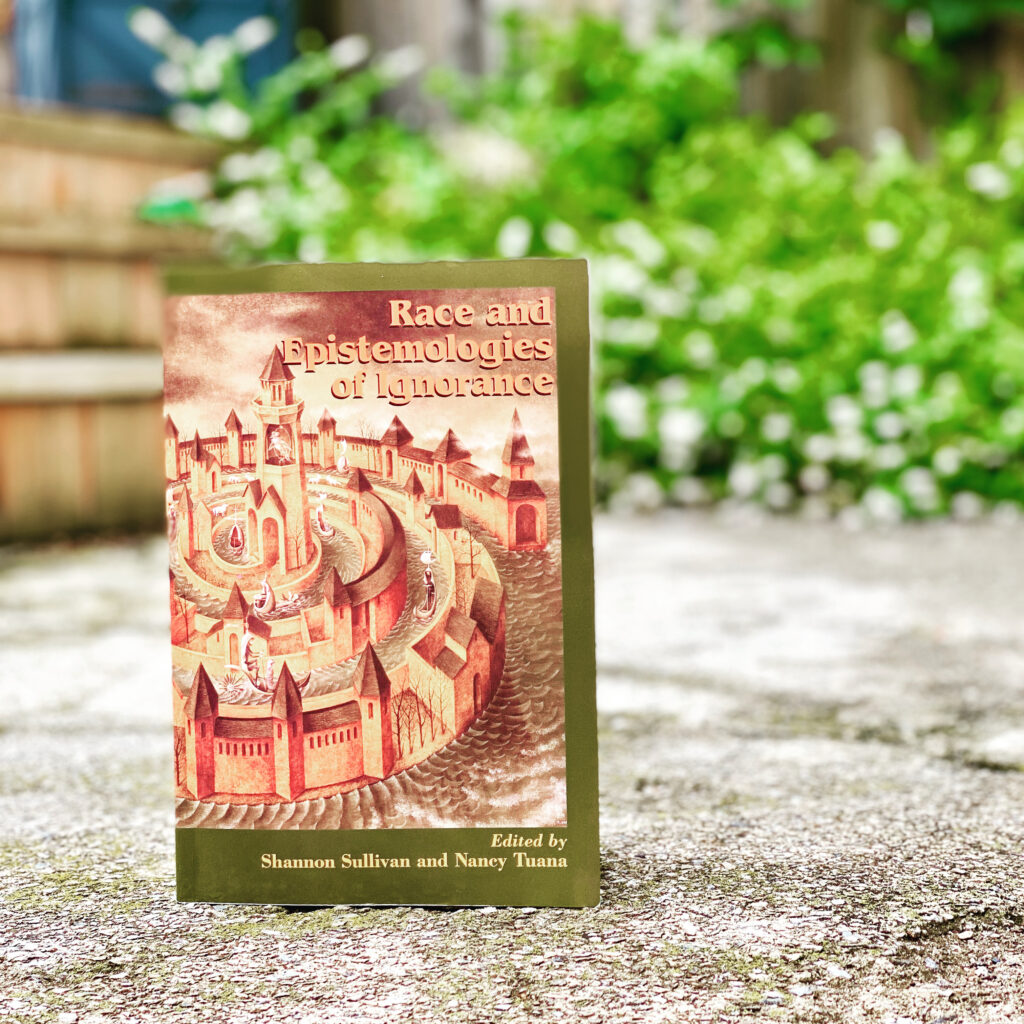
Scholarly collection. Earlier this year, I read and reviewed *The Racial Contract* by philosopher Charles Mills, which inserts the realities of global white supremacy into the social contract tradition within political philosophy. As I said then, I’m not super interested in the social contract as a way of understanding the world, but one of the things that drew me to that book was Mills’ discussion of an epistemological element to the racial contract that he describes as an “epistemology of ignorance.” This book is a collection of essays – one by Mills, the rest by other philosophers – building specifically on that part of the original book. They cover quite a range in terms of how they take up Mills’ ideas, and where they go with them. I found the essays by Mills and by Linda Martín Alcoff that deepened the idea of epistemology of ignorance, the essays that explored ignorance not just as an element of oppression and privilege but as a strategically deployed element of resistance by oppressed people, and the essays that looked at how racist ignorance has played out in the work of certain revered white philosophers (Dewey, Sartre) to be interesting and thought provoking. The essay that I found least compelling also happened to be the one that was most critical of the idea of an epistemology of ignorance – not, I should say, because I am particularly attached to Mills’ way of characterizing how knowledge and power wind together versus the many other possible ways that can be understood, but because this essay seemed more broadly hostile to social epistemologies, with objections that we need to be mindful of but that I think would fundamentally get in the way of our ability to understand and intervene in the world. And I was pretty lukewarm about a couple of the later essays that really didn’t add much to the discussion, and seemed to be oriented mostly towards connecting the idea of an epistemology of ignorance to their own particular analytical language and areas of work, and did so in pretty ho-hum ways. Anyway…I read this in part because of its relevance to my current book project, though doing so was definitely one of those instances of overkill that I have been working hard to restrain, as it’s the sort of thing I’ll reference in passing once but not actively use. The reason why I went ahead and read it anyway, though, is because it is perhaps more relevant to an idea I have for a future book project that is still very preliminary and unformed – don’t know if that idea will ever amount to anything, but the thoughts that this book made me think were a useful part of the percolation process that will eventually help me decide. Overall, I think this is really interesting and important stuff, but obviously it isn’t a book for everyone.
Originally posted by Scott on Goodreads.